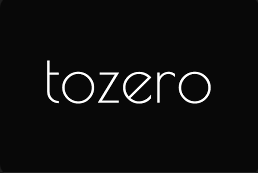MUNICH — In a move reflecting both the promise and the strain of the global electric-vehicle transition, German climate-tech startup tozero and China-based Huayou Cobalt in Tongxiang/Zhejiang, one of the world’s largest battery-materials producers, announced a partnership to expand lithium-ion battery recycling across Europe.
The agreement comes as policymakers and industry leaders on both sides of the Atlantic and Pacific intensify efforts to secure supplies of critical minerals, reduce carbon emissions and curb an escalating wave of end-of-life EV batteries.
Under the pact, Huayou Recycling, a subsidiary of Huayou Cobalt, will supply tozero with battery waste from retired electric-vehicle packs and production scrap generated in European factories. The material will be processed at tozero’s recycling facility in Munich — operational since April 2023 — where the startup aims to recover essential metals such as lithium, nickel and cobalt for reintroduction into new battery production cycles.
The two companies say they will also explore technological collaboration to deliver closed-loop material streams to automakers and battery manufacturers, a model increasingly encouraged by regulators in the European Union, the United States and Asia.
Rising Global Pressure
The partnership comes at a time of mounting international concern over mineral dependence and environmental costs.
- In Europe, policymakers are pushing the bloc to become the first net-zero continent by 2050, but forecasts show lithium-ion battery production will surge twenty-fold by 2030. Battery waste, meanwhile, is projected to rise 740% from 2022 to 2030, intensifying pressure on waste-management systems.
- In China, the world’s largest EV market, regulators have tightened recycling mandates and encouraged partnerships abroad to stabilize supply chains.
- In the United States, the Inflation Reduction Act has spurred investment in domestic battery recycling, with companies such as Redwood Materials and Li-Cycle expanding capacity to reduce reliance on imported materials.
Analysts warn that by 2030, global lithium supply could fall short by as much as 52%, making recycled materials increasingly critical. “If we manage to properly recycle locally accumulated battery waste, we can easily contribute beyond 50% of Europe’s demand on lithium by 2040,” said Sarah Fleischer, tozero’s co-founder and CEO.
An Expanding Industrial Footprint
tozero, founded by Fleischer and Dr. Ksenija Milicevic Neumann, has positioned itself as part of Europe’s emerging battery-recycling infrastructure. The company, backed by European venture investors, plans to open what it calls Europe’s largest battery recycling facility by 2027, with capacity to process 90,000 tons of battery material annually and produce 6,000 tons of locally sourced lithium.
Huayou Cobalt is also deepening its European presence, investing €1.5 billion in its first European cathode-active-materials plant in Hungary to serve automakers and battery manufacturers across the region. The company’s recycling arm already manages 65,000 tons of battery-waste processing capacity worldwide and maintains partnerships with BMW, Volkswagen, LG Energy Solution, POSCO and other leading manufacturers.
“We are glad to see that more and more innovative companies are joining forces with us in this great mission of sustainability,” said Wei Bao, general manager of Huayou Recycling. “By combining our strengths… we can truly bring lithium-ion battery waste to zero.”
A Race Toward Circularity
The collaboration reflects a growing global consensus that a circular battery economy — where materials are reused repeatedly — is essential to meeting climate goals while preserving geopolitical stability. As Europe, China and the United States accelerate EV adoption, industry watchers say cross-border agreements like this one may become more common.
For now, both companies describe their shared mission in simple terms: reduce waste, reduce dependency and reduce carbon footprints. “We’re pioneering a new era in the fight against battery waste,” Ms. Fleischer said. “This is a global challenge — and it requires global collaboration.”

